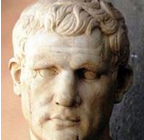This piece was reprinted by OpEd News with permission or license. It may not be reproduced in any form without permission or license from the source.
With their help, he began to create what Daniel Stedman Jones describes in Masters of the Universe as "a kind of neoliberal international" [a term modeled on "the Communist International]: a transatlantic network of academics, businessmen, journalists and activists. The movement's rich backers funded a series of thinktanks which would refine and promote the ideology. Among them were the American Enterprise Institute, the Heritage Foundation, the Cato Institute, the Institute of Economic Affairs, the Centre for Policy Studies and the Adam Smith Institute. They also financed academic positions and departments, particularly at the universities of Chicago and Virginia.
As it evolved, neoliberalism became more strident. Hayek's view that governments should regulate competition to prevent monopolies from forming gave way -- among American apostles such as Milton Friedman -- to the belief that monopoly power could be seen as a reward for efficiency.
Note the mention of Milton Friedman above. Neoliberalism is a bipartisan ideology, not just a Clintonist-Obamist one.
Democrats, Republicans and Neoliberalism
As Monbiot explains, for a while neoliberalism "lost its name" and was more or less a fringe ideology in a world still dominated by the ideas of John Maynard Keynes and Keynesian economics. When neoliberalism later came back strong in the Republican Party, it wasn't called "neoliberalism" but "Milton Friedman free market conservativism," or something similar.
Only when Bill Clinton and his Democratic Party allies adopted it in the 1980s did the term "neoliberal" re-emerge in public discourse.
[I]n the 1970s, when Keynesian policies began to fall apart and economic crises struck on both sides of the Atlantic, neoliberal ideas began to enter the mainstream. As Friedman remarked, "when the time came that you had to change " there was an alternative ready there to be picked up". With the help of sympathetic journalists and political advisers, elements of neoliberalism, especially its prescriptions for monetary policy, were adopted by Jimmy Carter's administration in the US and Jim Callaghan's government in Britain.
After Margaret Thatcher and Ronald Reagan took power, the rest of the package soon followed: massive tax cuts for the rich, the crushing of trade unions, deregulation, privatisation, outsourcing and competition in public services. Through the IMF, the World Bank, the Maastricht treaty and the World Trade Organisation, neoliberal policies were imposed -- often without democratic consent -- on much of the world. Most remarkable was its adoption among parties that once belonged to the left: Labour and the Democrats, for example. [emphasis added]
Note the role of Jimmy Carter and start of deregulation in the late 1970s. For that reason, many consider Jimmy Carter to be the "proto-neoliberal," both for the nation and the Democratic Party.
Neoliberalism -- "Just Deserts" for Predators and Prey
What makes "neoliberalism" or "free market conservatism" such a radical -- and destructive -- ideology? It reduces all human activity to economic competition. It creates and glorifies, in other words, a world of predators and prey, a world like the one we live in as today:
Neoliberalism sees competition as the defining characteristic of human relations. It redefines citizens as consumers, whose democratic choices are best exercised by buying and selling, a process that rewards merit and punishes inefficiency. It maintains that "the market" delivers benefits that could never be achieved by planning.
In a world where competition is right and good, a world in which the "market" is the defining metaphor for human activity, all social ties are broken, the individual is an atom left to survive as an individual only, the strongest relentlessly consume the weakest -- and that's as it should be. (It's easy to imagine how the apex predators of our social order would be attracted to this, and insist on it with force.
Thus the bipartisan world we live in today. Under a neoliberal regime, everyone gets what they deserve. Big fish deserve their meal. Little fish deserve their death. And government sets the table for the feast.
The Role of Government in a Neoliberal World
Since for neoliberals, the "market" is the source of all that is good in human interaction, non-interference in "the market" is rule one for government.
(Note: You can view every article as one long page if you sign up as an Advocate Member, or higher).





